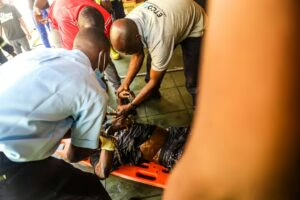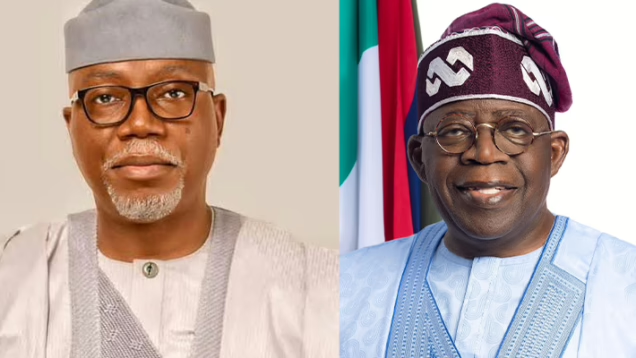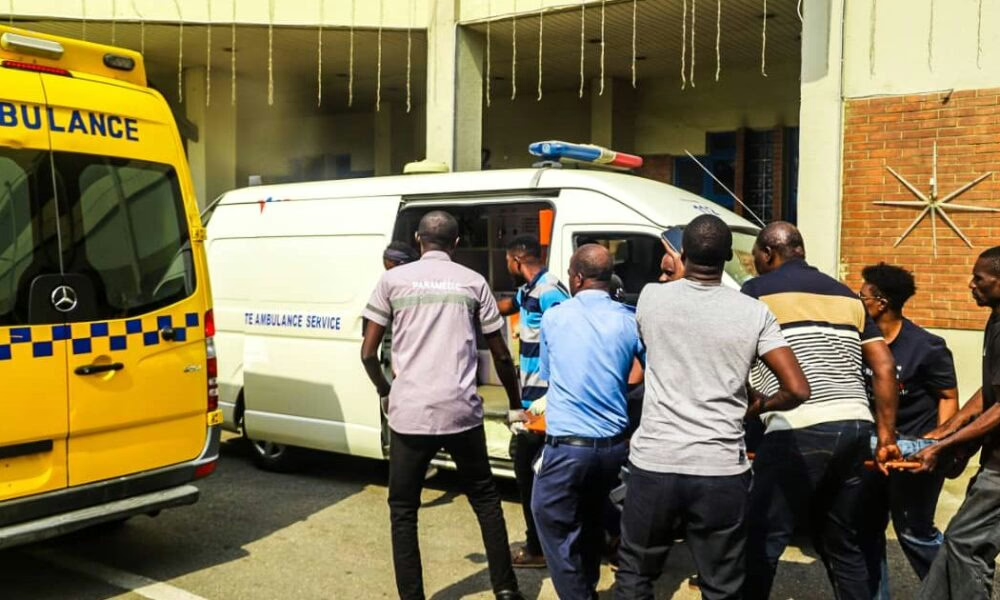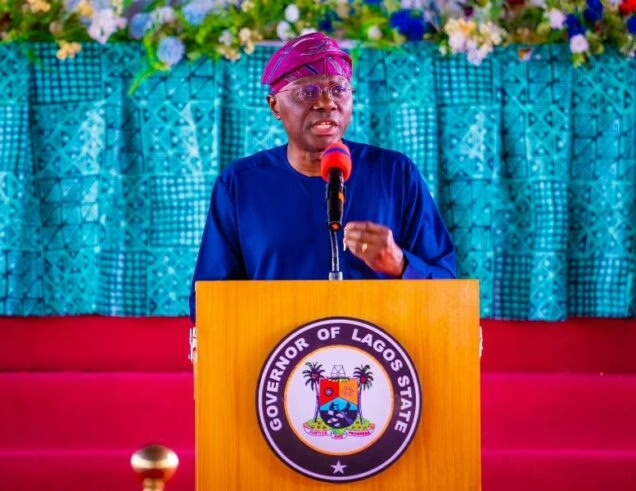By Chima Nwafo
The history of great nations today – from Europe, America to Asia – reflects accurate understanding of the Anglo-Roman idiom: Si vis pacem, para bellum – If you want peace, prepare for war – which origin is abridged from Publius Flavius Vegetius Renatu’s Tract. They fought wars, internal and external before the first and second World Wars. And after the wars, they had peace. Lately, India experienced the assassination of a popular leader by an aggrieved minority group. After the initial reprisal, justice took its course and ever since India had peace. Her transformation today attracts global acclamation.
Despite the supremacy battle of the superpowers and nerve-racking suspense of the Cold War years, the Germans were reunited between November 1989 and 1991; the Berlin Wall came down in a Peaceful Revolution that was described as a miracl, “the unthinkable can happen!” And it happened in 44 years. Well, they’re White and practical Christians too – not church-goers. Today, Europe, America, China and India rule the world of technology in healthy competition.
Hateful minds
But, 54 years after Nigeria’s 30-month fratricidal war, we’re neither secured nor peaceful in “One Nigeria.” Some blame it on widespread culture of unforgiveness. Besides, the truth scares us – both young and old, educated and illiterate. Today, the country is bleeding! But some people are benefitting. We know that feudal and monarchical tendencies driven by self-serving political elite have brought us to this sorry pass. We also know that both Islamic and Orthodox religious leaders as well as Pentecostal Church merchants are part and parcel of our problem. But no one wants to hear the TRUTH. Yet, unforgiveness is like a flat tyre, unless replaced (you forgive), the vehicle (Nigeria) cannot move; and hatred is a curse that does not affect the hated, but gradually poisons the heart of the hater, hence the perpetuation of injustice against the vanquished.
In response to a recent statement credited to Ohanaeze Ndigbo, Arewa Consultative Forum (ACF) Spokesman, Prof Muhammad Tukur Baba, reacted in a release entitled: There is no reason for Gen Yakubu Gowon to apologise for answering a national call to keep Nigeria one. It was widely reported in the media on March 18th. However, we’ll take a paragraph because it was a rehash of the same holier-than-thou diatribe.
He wrote: “The ACF has taken its time also to digest the statements representing the officials of Ohanaeze Ndigbo as well as the self-styled Indigenous Peoples of Biafra (IPOB), irreverently calling on ACF’s grand patron, former head of state and elder statesman, Gen Yakubu Gowon, to ‘apologise’ for some nebulous ‘sin’ against Igbo people, emanating from his role as Commander-in-Chief of the Armed Forces of the Federal Republic of Nigeria, during the civil war….”
While nebulous is defined as “vague, not clear,” Random House Thesaurus describes sin as: “Ungodly act, immoral act, irreligious act, iniquity, transgression, wrong, wrongdoing, evil deed, vice, misdeed, violation, offence, infraction, error, etc. “ Therefore, war sin cannot be nebulous; it is deliberate and predetermined.
Yours truly humbly disagrees with those who still demand an apology from Gen Gowon. Rather, the Middle Belt elder statesman deserves pity, given the magnitude of violence being visited on his constituency today. Besides, being alive to witness what is happening in Nigeria 54 years after “crushing the rebellion, to keep Nigeria one” should be a cause for concern to men of conscience. In a way, the verdict of history is staring at us. But the truth is always a bitter pill.
Certainly, describing the globally acknowledged War Crimes and acts of inhumanity perpetrated during the 30-month carnage of 1967-1970 as “nebulous sin” leaves a question mark on the proponents’ morality and sense of justice. And much as Gowon was not the initiator of “Starvation is a legitimate weapon of war” policy that officially starved over a million Biafran children to slow and painful death, he was Head of the Federal Military Government that authorised it, denigrated the Geneva Convention and abused every rule of engagement.
British Lord confesses
Celine Akosua Harry, in a piece marking the debut of Photojournalism in 1968, captured a report entitled: After Dinner, We Watch How People Starve And Die In Africa: “From their living rooms, Britons watched an array of news flashes and video clips of children lacking protein and suffering from kwashiorkor evinced in their perverse pot-bellies (see photos). As a Baron in the House of Lords said, ‘thanks to the miracle of television, we see history happening before our eyes. We see no Ibo propaganda; we see facts.’
“The war in its first year was not popular within the international community. Biafra was seen as merely a secession on ethnic grounds in Nigeria. Yet, as reportage on dying children in Biafra hit Western media airwaves in the summer of 1968, a swarm of newspapers all around the world arrived in Nigeria in attempts to get to Biafra, to report the horror they had heard about. All across the summer photos like these found their way into news spreads such as Life, The Times and the Sunday Times, and within an array of British and Western tabloids. This saw the influx of reporters, television crews and photographers making their way to Biafra. American writer, Philip Gourevitch, commented that the war was ‘the first African war to be televised.’”
Genocidal in execution
From inception, it was a strategically executed and diplomatically implemented genocidal war, or ethnic cleansing, as a world leader at the time described it. From the War Cabinet to civil servants and soldiers it was approached with utter brutality. Fifty-four years on, Gen Ibrahim Babangida was quoted as describing aspects of the war as very difficult – “killing people you know and trained together as friends and brothers…” But to our Christian brothers from the South to the North, it was sport. They belong to the same school of thought as Gen Muhammadu Buhari who opened a fresh war front in South-east in 2015, in the guise of fighting IPOB, a splinter group of MASSOB that has been in non-violent protest against social injustice for over 30 years.
After observing the 30-month carnage backed by Britain, popular Paris, France, newspaper, Le Monde, in January 1970 wrote: “Even if the capitulation of Biafra means for millions of Ibos an easing of that Calvary they have endured for thirty months – and one would like to be more convinced of it – the conflict would remain one of the most somber pages in all human history.”
An impartial observer at UNHQ writes
To capture a global view of what transpired then, besides Harry’s earlier report, here are excerpts from BRUTALITY OF NATIONS, by Dan Jacobs, United Nations Spokesman at the New York Headquarters.
Worst human catastrophe since 1945
In the Prologue, the Harvard-trained American author and former speechwriter for Hubert Humphrey, noted: “In Our scientific age, it is necessary to quantify, if we are to make a statement like: ‘Biafra Was The Greatest Human Catastrophe Since World War II.’ If there is no precise statistic, it is difficult to compare Biafra with other recent human disasters – Indochina, the southern Sudan, Bangladesh, Burundi, the Sahel, and the Ethiopian famines; Uganda, Kampuchea (Cambodia) the African drought. However, the sheer horror of children starving – or being deliberately starved – made this one of the most emotional events of our time.”
“The refugee problem which led to starvation in Biafra dates back from the post-January 15 (1966 ) Pogroms, when over 30, 000 easterners (not Ibos alone) were massacred in the North and millions forced to abandon their trades and careers as their security was no longer guaranteed in other parts of the country by the Federal Military Government.
“Dr Clyne Shepherd, a medical missionary from Edinburgh, wrote officials of the World Council of Churches (WCC) in Geneva, requesting further supplies and went on to describe what he and others in Biafra were beginning to encounter every day: ‘There are many gruesome stories about refugees. My experience of a few hours ago is by no means the worst. A nurse brought in two dying women about an hour ago … one with dysentery and the other with anaemia and pneumonia. This led to the discovery that the 400 people in their Camp had had no solid food for four days…’
“Always one of the most densely populated places in Africa, now with additional one and a half million refugees, Biafra had been cut off from its customary sources of protein…. Blockade of the area had begun even before Biafra’s secession from Nigeria a year before…
“Heinrich Jaggi, a Swiss businessman in Nigeria pressed into Red Cross service in Biafra, radioed headquarters in Geneva: ‘The refugee problem has now increased to such an extent that there are no longer words to describe it. Thousands and thousands of fleeing civilians are now returning to the centre… Men, women and children dying along the road due to exhaustion or starvation… Infants and small children need proportionately more protein than adults for their rapidly growing bodies. Their hair turning reddish-gold indicated kwashiorkor, the disease of protein malnutrition…’
“Urgent appeals began coming in to the international relief agencies in
New York, Geneva and Rome:
“Biafra had been blockaded for 17 months, and by June of 1968, the shortage of protein foods had begun to take its toll.
Elders delighted to see children die
“On the morning of October 12, 1968, a cable arrived on the 38th floor of the United Nations Secretariat, the office of Secretary-General, U Thant. It has been stamped twice: time and date received and ‘For Action’ by Undersecretary-General, Jose Roltz-Bennett, Thant’s deputy. The cable was from Dr Herman Middlekoop, the Dutch missionary doctor in charge of relief operations in Biafra for the WCC (World Council of Churches).
“After months without response, Dr Middlekoop, a man not given to overstatement, wrote: For Secretary-General, UN: From WCC Refugee Relief, Biafra.
‘Dear Mr Thant, estimated death from starvation in the month of July, 8,000 per day; August 10,000 per day; September 12,000 per day. Present situation holds or decreasing slightly with present level of relief flights. However, unless (there’s) immediate ceasefire, month of December could see death rate units of 25, 000 per day. Carbohydrates likely to be exhausted in next seven weeks. Biafra will be completely without food. Acute mass starvation unavoidable….’”
Despite the seriousness of this cable and certainty of its delivery through the office of the deputy, Thant, when contacted by New York Times, denied seeing any message from Dr Middlekoop; one example of UK’s stranglehold on the UN at the time. Of course, UK was effectively backed by the powerful US State Department that overruled President Lyndon Johnson, and successor Richard Nixon that described the war as “Ethnic cleansing.” Americans, horrified by the video clips of the carnage, defied the state and poured food and medication aids to Biafra, especially through CARITAS.
Determined to enforce the starvation policy to its fatalistic end, intransigence assumed a life of its own in Lagos. Gowon contemptuously defied the spirit and letter of section 3 of the Geneva Convention. Nigerian’s disregard for civility was only matched by FMG’s abuse of rights even in 1968, which the UN declared International Year of Human Rights. The Red Cross was thrown into a smorgasbord of inexactness and duplicity at every stage of negotiation for humanitarian relief for dying children. Such frustration at the highest levels contributed to the untimely death of ICRC’s chieftain.
Jacobs recalled:
Red Cross president suffers stroke
“Though the Nigerians had no intention of giving any organisation permission to move food into Biafra, they had already kept ICRC officials tied up in negotiations for months – learning in the process that the Red Cross would never do anything ‘illegal’. The British (conspiratorially) persuaded the Nigerian government to invite the ICRC to coordinate all relief.
“The ICRC contend they must remain ‘naifs’ in a highly political world. They cannot become involved in the politics of a situation or carry out the kind of partisan diplomacy governments do. They depend on the decency of governments to allow them to carry out their humanitarian work. And then, of course, what was about to happen to them had never occurred before in the previous century (100 years) of their history.
“The Red Cross President went down the hills of the League of Nations building to ask Secretary-General U Thant’s assistance. There is a sad symbolism that Samuel Conrad had suffered a slight stroke without realizing it. Those around him did not recognize right away that he was no longer the vigorous man that he had been; just as they did not recognize right away the true purpose of the message they had received that day from Lagos….”
Such was the extent of evil diplomacy and double standards with which PM Harold Wilson’s Britain reduced both the UN Secretary-General and the Red Cross to pawns in their power play to help Nigeria achieve her inglorious objective of starving innocent children to death. What a way “to keep Nigeria one.” But that is not all.
American student died for Biafra
Bruce Mayrock, on May 29, 1969 – horrified by the ugly images of dying and starving Biafran children – went to the New York Headquarters of the United Nations and set himself ablaze in a solo protest against what he described as Genocide against the nation and people of Biafra. Although rushed to the hospital, he was pronounced dead the following day. Bruce, a student of Columbia University, could not stand the horror in the video clips showing the brutality of Nigerians and gory images of dying and starved Biafran children. In an ultimate demonstration of concern over such crude display of primordial hate and cruelty, Bruce sacrificed his promising life. Perhaps, many Nigerians, including Ndigbo, may not have known of this martyr.
Callous
On page 61 Jacobs captured Federal Government’s angry reaction to a paid-for Biafran advertisement in a foreign paper.
“On another occasion, Labouisse (a UNICEF official in Lagos) was summoned by Chief Anthony Enahoro (Federal Commissioner for Information), who was angry about a cable just received from New York. A full-page advertisement had appeared in New York Times: the cable described it as ‘tendentious.’ (Large letters above a photo read: ‘We are the children of Biafra, by August we will be dead.’ Enahoro complained that the ad sought contribution for the UNICEF….“
That means, any form of humanitarian aid to the dying Biafran children was an offence against the FMG; same government that campaigned at the Organisation of African Unity (now African Union) and the United Nations that no nation should interfere in Nigeria’s internal affairs. And most agreed, supported her!
‘Son of a snake is a snake’
Jacobs continued: “One of UNICEF’s representatives, himself an African, went to a Nigerian government ministry to ask for permission to provide relief to civilians in the war-stricken areas. The Nigerian official said emphatically: ‘We want no food going to the rebels.’ The representative explained, carefully, that UNICEF did not want to help ‘rebels’ – it was the UN Children’s Fund, it only wanted to provide food and medical assistance to small children. The Nigerian official responded: ‘The son of a snake is a snake’…”
Reckless raids on civilians
Jacobs also captured the recklessness of Egyptian pilots flying Soviet MiGs, which targeted schools, markets and civilian gatherings. Although one witnessed one of the worst of such cruel displays in September 1968 at Aba, the experience of mother of late transporter, Chief CN Okoli, is perfect. She lost her left foot in one of such barbaric raids at an Eke Market in 1967. In 2005, during a chat sequel to her conferment with Ezi Nne (Adorable Mother) by St Matthews Anglican Church, Enugwu-Nanka, the 115-year-old villager recalled the pains, confusion and deaths during that raid on an open market. It captured the trade mark sadism of Egyptian pilots dutifully briefed by their Nigerian Air Force employers
Finally, while Gen Gowon played the role of Devil’s advocate, the international community knew where power resided, and also the powerful politician who authored the starvation policy.
Jacobs noted: “To officials of international agencies who came to Lagos seeking permission to provide relief, Gen Gowon, the Nigerian Head of State, seemed a genuinely humanitarian man, willing to allow assistance to the Biafrans. He was a young officer, however, inexperienced in politics; catapulted into the role of a head of state by a coup d’etat two years before (July 29, 1966), surrounded by more experienced political men and top civil servants not all of whom shared his willingness to allow humanitarian relief for the ‘rebels.’ He did not control the government entirely – he was not even first among equals in the collegiate group running Nigeria. Nor did his writ extend far into the countryside….”
Yet, Gowon was the Head of State and Commander-in-Chief, Nigerian Armed Forces, ordained by Buckingham Palace and employed by No !0 Downing Street. He got the job done! Made post-war pledges all of which remained unfulfilled! But how well has the nation fared?











